RTA Board Chairman's Letter to Illinois Legislators
May 29, 2020
May 29, 2020
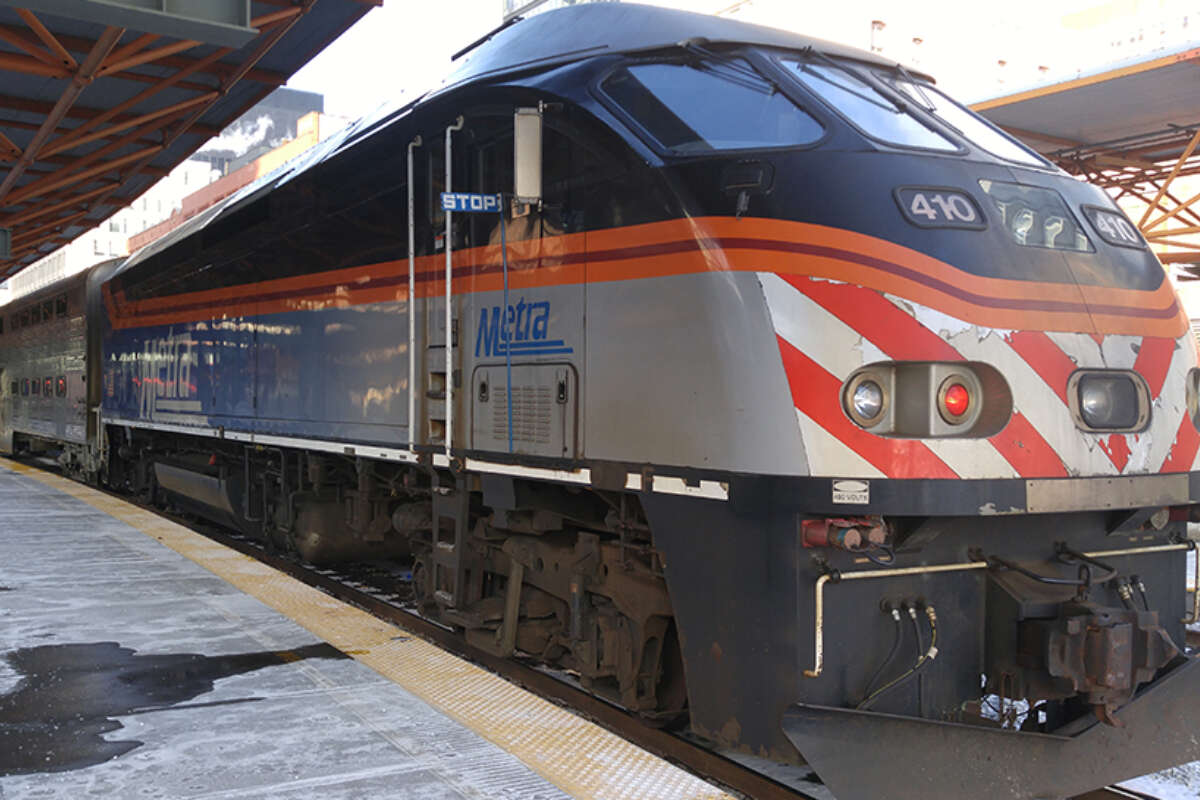
On May 18, 2020, I sent a letter to Illinois legislators on behalf of the Regional Transportation Authority (RTA) in response to the COVID-19 pandemic. Later in May, the General Assembly met and passed a state budget that funds the region's essential transit system, though more discussions on funding will be needed as the crisis evolves. The full letter is below:

Dear Governor Pritzker and Members of the Illinois General Assembly:
As our state and nation continue to face the evolving challenges presented by the COVID-19 pandemic, the RTA and the three Service Boards (the CTA, Metra and Pace) remain committed to the safety of transit workers and customers across the six county RTA region. During this difficult time, my thoughts are with everyone impacted by the COVID-19 pandemic, including our frontline transit workers and the region’s essential workforce, many of whom are still utilizing the transit system.
The COVID-19 pandemic has put our society in uncharted territory. Although some observers are speculating about how it might transform the world in years to come, the rapidly changing crisis means such predictions are based on factors that are highly uncertain and likely to remain so in the coming months. Despite the many unknowns, I know three things for certain regarding the significance of transit’s role in this region:
First, prior to COVID-19 transit was essential to this region’s economic success. For over 100 years, the growth of Northeastern Illinois has been inextricably linked to the region’s transit system. For generations, transit has been the backbone of the transportation network that made this region into one of the nation’s premier freight, banking and commerce centers. In the past decade, nearly two-thirds of workers arriving each day in Chicago’s Loop rode a bus or train and 50% of all jobs added in Northeastern Illinois were within a half-mile of transit. Importantly, the number of workday rides on the region’s transit system is the equivalent of 1/6th of the population of the State of Illinois (2 million riders per weekday). In 2017, 85% of all new commercial construction in the RTA region occurred within a half-mile of a CTA or Metra train station.
Second, transit is vital to the region and state’s response to the COVID-19 pandemic. Despite significant ridership decreases during the state’s stay at home order, the RTA region’s transit system is still providing transportation for hundreds of thousands of people on a daily basis, many of them the state’s most essential workers. People are riding transit to jobs in hospitals, police and fire stations, grocery stores and at major shipping centers. It is these workers who we are relying on to keep us safe during this crisis. In turn, many of these workers are relying on transit.
Third, transit will be absolutely pivotal as the state and region begin to recover from the social and economic fallout of the COVID-19 pandemic. Transit may look different as a result of this crisis, and each of the RTA’s Service Boards must be ready to innovatively respond to changing circumstances such as new commuting patterns and the necessity of providing more space on trains and buses. Nonetheless, a region as dense and populous as ours cannot thrive economically and cannot provide access to opportunity equitably without an efficient transit system. A future in which every resident of the region must rely solely on automobiles is not a viable solution. We know that the COVID-19 pandemic has disproportionately affected communities within our region, in many ways shining a light on inequities that have long been present. As the region begins to recover, transit will continue to play an important role in providing an essential connection between communities and opportunity.
Consequently, sustaining our region’s transit system during this time is of the utmost importance. Every sector of our society has been affected profoundly by the COVID-19 crisis, and the region’s transit system is no different. As students and workers from across the region have sheltered in place since mid-March, ridership has decreased significantly with ridership on the system’s buses and trains having fallen by 81%. According to our early revenue forecasts, this reduction in ridership, coupled with significant projected decreases to the region’s sales tax revenue, could result in an RTA region operational revenue decrease of over 36% in 2020 and billions of dollars in lost operating revenue over the next several years.
Prior to the COVID-19 pandemic, the day to day operation of the region’s buses and trains was already being tested due to more than $200 million of state budget cuts over the past five fiscal years. The COVID-19 crisis will only exacerbate these challenges. In late March, our region was designated to receive additional federal funding through the CARES Act. This supplemental operational funding is significant as it lessens the immediate severity the system’s fare revenue loss. However, CARES Act funding will likely not be sufficient to cure all of the transit system’s COVID-19 related economic harm.
Additionally, we anticipate further new capital investment challenges, as many of the revenue sources supporting our capital program will be hit by the pandemic. As I have said before, we are incredibly grateful for the passage of the Rebuild Illinois capital program, which will provide the RTA region with a much-needed state capital investment commitment that had not occurred since 2010. Furthermore, Rebuild Illinois provided the RTA region with its first ever dedicated and sustainable capital revenue stream, which is essential for continued maintenance and capital reinvestment. Nonetheless, as we have noted previously, Rebuild Illinois was only the first step in correcting years of capital disinvestment in our region’s transit infrastructure.
As a former legislator, I know first-hand that the economic strain caused by a crisis like this is widespread and will have a significant impact on the State’s own budget. As the Illinois General Assembly returns to session this week, with the existence of so much uncertainty, we are asking that the State not make any further reductions to the RTA’s already diminished operating budget. We are also requesting, to the extent possible, that the State continue to fully fund the Rebuild Illinois program and move forward on the region’s critical transit infrastructure investments.
Thank you for all that you do and please be safe during this time. As always, please do not hesitate to reach out to myself or RTA staff with any questions or concerns.
Sincerely yours,

Kirk W. Dillard
Chairman
Subscribe to our Newsletter
Related Articles
 New project management oversight report highlights more than 100 projects representing $8.2 billion in capital investments
New project management oversight report highlights more than 100 projects representing $8.2 billion in capital investments
The RTA’s Project Management Oversight (PMO) program ensures that the Service Boards—CTA, Metra, and Pace—are spending capital funds and managing their infra...
June 27, 2024 Transportation Tuesday recap: Improving and expanding the transit system strategically
Transportation Tuesday recap: Improving and expanding the transit system strategically
With last year’s adoption of Transit is the Answer came 15 new evaluation metrics that comprise a strategy for evaluating and selecting capital projects. Now...
May 30, 2024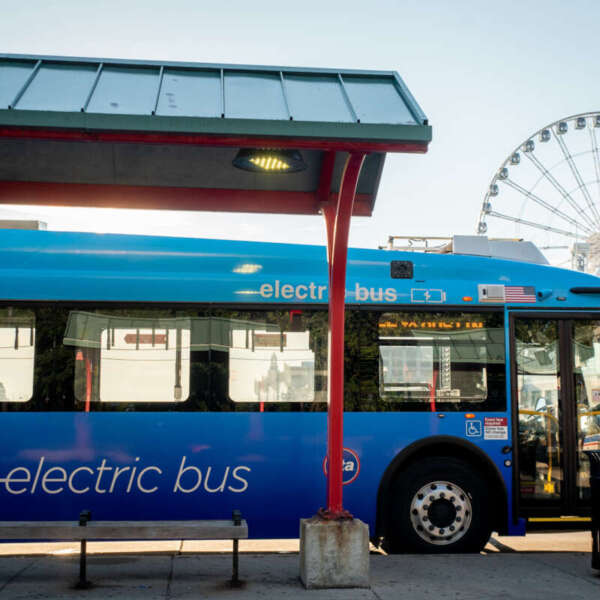 Transit is the answer to meeting Illinois’ climate goals
Transit is the answer to meeting Illinois’ climate goals
As we celebrate Earth Day 2024, the RTA is announcing Transforming Transit —the agency’s commitment to lead the Chicago region’s transit system into the futu...
April 18, 2024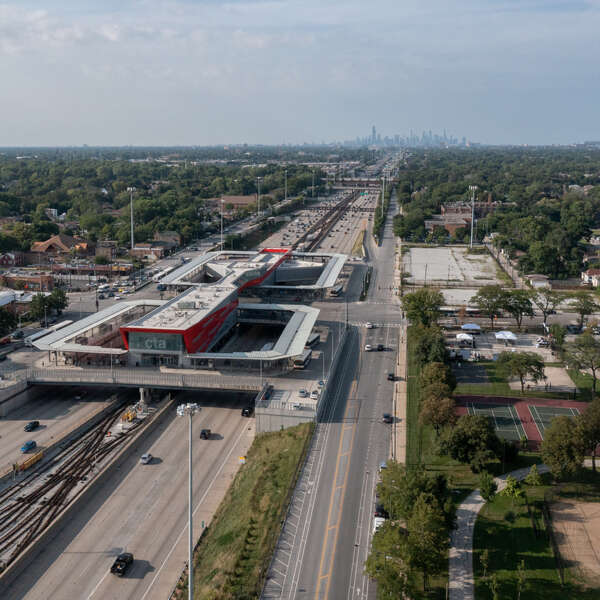 Three years into the Infrastructure Investment and Jobs Act, Chicago’s transit system is winning competitive grants and advancing critical projects
Three years into the Infrastructure Investment and Jobs Act, Chicago’s transit system is winning competitive grants and advancing critical projects
The Infrastructure Investment and Jobs Act (IIJA), passed in 2021, represented a historic level of federal investment for shoring up the nation’s infrastruct...
March 12, 2024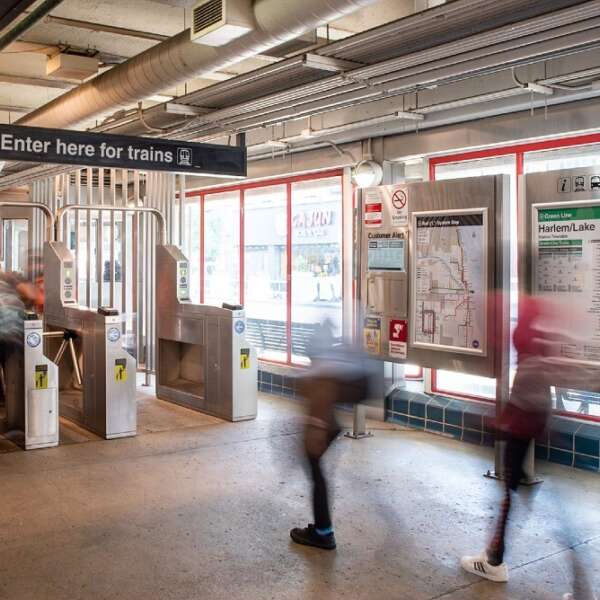 Why fully funding paratransit service and reduced fare programs is key to closing the transit budget gap
Why fully funding paratransit service and reduced fare programs is key to closing the transit budget gap
With transit facing a fiscal cliff in the coming years, fully funding critical programs like ADA paratransit service and free and reduced fare programs is on...
February 29, 2024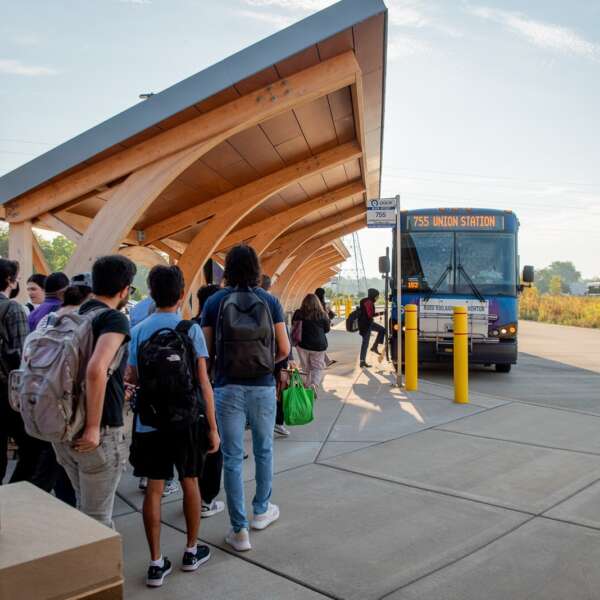 RTA releases semi-annual project management oversight report highlighting more than 100 capital projects
RTA releases semi-annual project management oversight report highlighting more than 100 capital projects
Under its Project Management Oversight (PMO) program, the RTA ensures that the Service Boards—CTA, Metra, and Pace—are spending capital funds and managing th...
January 3, 2024